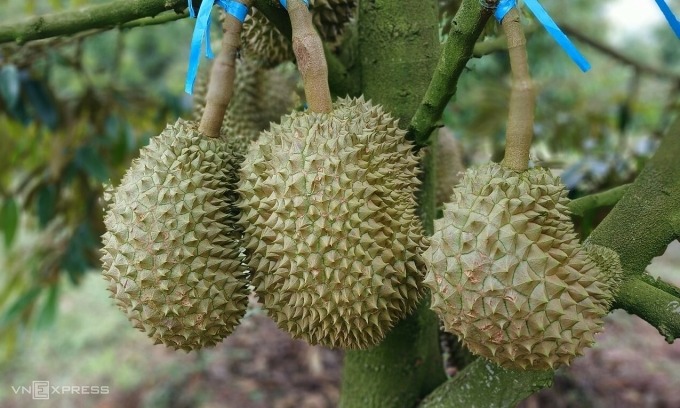5 Crucial Facts Behind the Outrage Over 1,000 Durian Trees Cleared in Malaysia

Malaysia's government faced backlash after removing 1,000 durian trees in April, leading to demonstrations, worries about farmers' property rights, and a corruption inquiry.
This is what you should understand:
What was the reason for cutting down the trees?
The land conflict in Raub town, located in Malaysia's Pahang state, started on April 8 when authorities removed approximately 200 durian trees they claimed were cultivated on unauthorized land. In just a few days, 1,000 trees were felled.
The Malaysian authorities stated that the trees had been planted on state-owned land without proper permission, leading to their removal as part of an effort to regain control of the area.
The Pahang authorities refuted any violation of court orders, asserting that the farmers' legal bids to retain their orchards were rejected by an appellate court in May 2024.
How did farmers respond?
Farmers, supported by the non-government organization Save Musang King Alliance, demonstrated against the implementation of the new rules.
Local media reports suggested that residents obstructed officials from entering the farms using banners as a means to safeguard the durian trees.
The Save Musang King Alliance stated that a court ruling in May of the previous year prevented the government from destroying the farms.
"Recently, the farmers' legal representatives issued an official notice to the Pahang state government, calling for an urgent suspension of the deforestation activities to avoid additional harm to the fruit plantations," stated Chow Yu Hui, who serves as both the chairperson of the coalition and a member of parliament, back in early April.
What was the worth of the trees?
A significant number of the felled durian trees belonged to the Musang King variety, a premium type renowned for its distinctive taste and consequently steep market values.
Musang King durians can fetch prices as high as $15 per kilogram, positioning them within the luxury segment when contrasted with other types like Vietnam’s Ri6 and Thailand’s Monthong.
The Royal Pahang Durian Group, which leases the contested land in Pahang, has proposed leasing this land to farmers with the condition that they must sell their produce back to them for $9.50 per kilogram, equating to about 30% below current market rates.
Some farmers claimed that they had settled on the land since 1974, and some of the trees they had grown were up to 40 years in age, but the government said it found trees only eight or nine years old, which indicated recent encroachment.
Are officials under investigation?
Certainly. The Malaysian Anti-Corruption Commission is investigating whether present or past officials were involved in the land controversy.
"Indeed, we possess an existing list. Given that this case occurred roughly 10 years ago or longer, several of the officials implicated have subsequently retired," stated Chief Commissioner Tan Sri Azam Baki according to reports from state media. Bernama .
No arrests have been made yet involving any former officials.
To what extent do durian trees contribute to Malaysia’s economy?
Durian is among Malaysia’s key export fruits to China. Last year, Malaysia delivered US$212 million worth of fresh durian to China, thanks to a bilateral protocol signed in August.
The Malaysia Chamber of Commerce and Industry in China expects Malaysia’s durian exports to China To increase by 15-20% this year, fueled by higher consumer preference for the Musang King variety, capable of competing with premium fruit options like Japanese strawberries and grapes.
Despite attempts to cultivate Musang King durians in China, the chamber’s chairman Loh Wee Keng stated that these endeavors did not meet Malaysian quality standards.
He stated that Hainan Musang King cannot substitute for the genuine Malaysian version.





